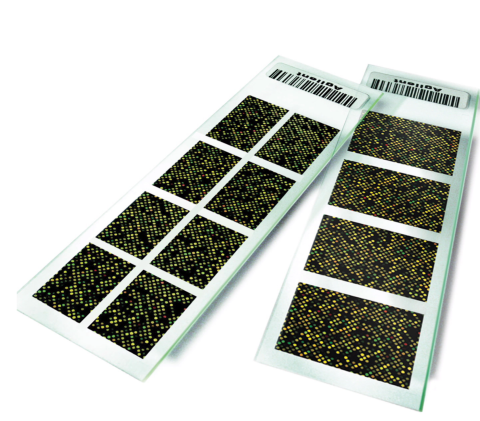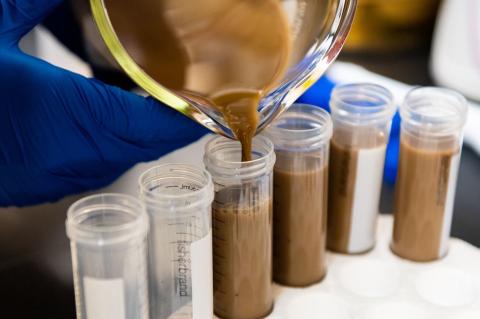Last updated on 2023-01-30T00:09:57+00:00 by LN Anderson Ebola Virus Experiment EIHH001 This experiment evaluated Immortalized Human Hepatocyte ( IHH ) cell line host response to wild-type Ebola viruses Zaire Ebola (ZEBOV '76) and Reston Ebola (REBOV '08) viral infection. Processed Transcriptome...
Filter results
Category
- (-) Scientific Discovery (22)
- Biology (22)
- Human Health (20)
- Integrative Omics (15)
- Computational Research (5)
- Data Analytics & Machine Learning (5)
- Computational Mathematics & Statistics (1)
- Computational Mathematics & Statistics (1)
- Computing & Analytics (1)
- Data Analytics & Machine Learning (1)
- Microbiome Science (1)
- National Security (1)
Content type
Tags
- (-) Resource Metadata (9)
- (-) Microarray (7)
- Virology (79)
- Immune Response (53)
- Time Sampled Measurement Datasets (50)
- Gene expression profile data (47)
- Differential Expression Analysis (46)
- Homo sapiens (34)
- Mass spectrometry data (31)
- Multi-Omics (30)
- Viruses (26)
- Omics (25)
- Health (23)
- Virus (23)
- Soil Microbiology (21)
- MERS-CoV (18)
- Mus musculus (18)
- Mass Spectrometry (14)
- sequencing (13)
- West Nile virus (13)
- Genomics (12)
- Ebola (11)
- Influenza A (11)
- PerCon SFA (10)
- High Throughput Sequencing (9)
- Metagenomics (9)
- Microbiome (8)
- Proteomics (8)
- Synthetic Biology (7)
- Imaging (6)
Last updated on 2023-01-30T00:09:57+00:00 by LN Anderson Ebola Virus Experiment EIHH002 This experiment evaluated Immortalized Human Hepatocyte ( IHH ) cell line host response to response to genetically-reconstructed Zaire Ebola virus infection. Processed Transcriptome Data Unavailable
Category
MERS-CoV Experiment MDC001 Processed Omics Data Unavailable This experiment evaluated primary human dendritic cells infected with a wild type MERS-CoV (icMERS) virus. Related Experimental Data BioProject: PRJNA315103 GEO: GSE79172 (mRNA transcriptome response) Acknowledgment of Federal Funding The...
Category
Influenza A Experiment IM104 Processed Omics Data Unavailable This Influenza experiment evaluated mouse lung expression after etoposide treatment and infection with a pandemic H1N1 influenza strain. Related Experimental Data BioProject: PRJNA382278 GEO: GSE97555 (mRNA transcriptome response)...
Category
A major challenge in biotechnology and biomanufacturing is the identification of a set of biomarkers for perturbations and metabolites of interest. Here, we develop a data-driven, transcriptome-wide approach to rank perturbation-inducible genes from time-series RNA sequencing data for the discovery...
Human infections caused by viral pathogens trigger a complex gamut of host responses that limit disease, resolve infection, generate immunity, and contribute to severe disease or death. Here, we present experimental methods and multi-omics data capture approaches representing the global host...
Category
Machine learning is a core technology that is rapidly advancing within type 1 diabetes (T1D) research. Our Human Islet Research Network (HIRN) grant is studying early cellular response initiating β cell stress in T1D through the generation of heterogenous low- and high-throughput molecular...
Datasets
3
The Environmental Determinants of Diabetes in the Young (TEDDY) study is searching for factors influencing the development of type 1 diabetes (T1D) in children. Research has shown that there are certain genes that correlate to higher risk of developing T1D, but not all children with these genes...
Datasets
1
The Diabetes Autoimmunity Study in the Young (DAISY) seeks to find environmental factors that can trigger the development of type 1 diabetes (T1D) in children. DAISY follows children with high-risk of developing T1D based on family history or genetic markers. Genes, diets, infections, and...
Datasets
1
Last updated on 2023-04-24T18:38:03+00:00 by LN Anderson Instrument Data Source Profile Instrument Name: Agilent DNA Microarray Scanner Model: G25025C Data Type: Microarray hybridisation data (mRNA, miRNA) Method Taxon: Expression profiling by array, Non-coding RNA profiling by array Topic Areas...
Last updated on 2024-03-21T18:47:20+00:00 by LN Anderson MPLEx Method Protocol for Integrative Single-Sample Processing for Subsequent Proteomic, Metabolomic, and Lipidomic Analyses Method Source Contributions LN Anderson , Data Curation The Metabolite, Protein and Lipid Extraction (MPLEx) method...
Category
Last updated on 2024-02-11T22:41:43+00:00 by LN Anderson Ebola Virus Experiment EU937001 The purpose of this experiment was to evaluate the human host response to wild-type Zaire Ebola virus (strain Mayinga) and mutant virus infection. Samples were obtained from human histiocytic lymphoma cells...
Category
Last updated on 2024-02-11T22:41:43+00:00 by LN Anderson Influenza A Virus Experiment IM101 The purpose of this experiment was to evaluate the host mouse response to Influenza A virus (subtype H5N1) wild-type strain Influenza A/Vietnam/1203/2004, Influenza A/Vietnam/1203/2004 mutant strains PB2-627E...
Category
Last updated on 2024-02-11T22:41:43+00:00 by LN Anderson Ebola Virus Experiment EHUH001 The purpose of this experiment was to evaluate the human host response to wild-type Zaire Ebola virus (strain Mayinga) and mutant virus infection. Samples were obtained from human hepatoma carcinoma cells (HUH-7)...
Category
Last updated on 2024-02-11T22:41:43+00:00 by LN Anderson Ebola Virus Experiment EHUH003 The purpose of this experiment was to evaluate the human host response to wild-type Zaire Ebola virus (strain Mayinga) infection. Samples were obtained from human hepatoma carcinoma cells (HUH-7) infected with...






